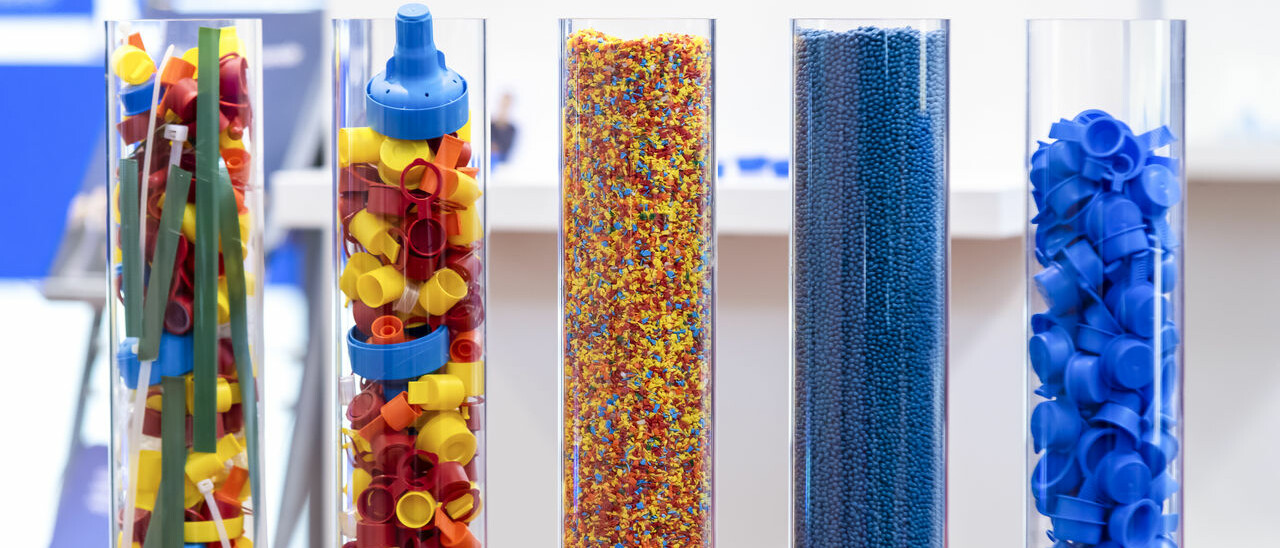Switching to a circular economy

he next Fakuma – International Trade Fair for Plastics Processing – will take place from October 12 to 16, 2021. The 27th trade fair, internationally regarded as the first port of call in injection molding, extrusion technology, thermoforming and 3D printing, is eagerly awaited as a presence platform by manufacturers and customers in the plastics industry. Among other things, the focus will be on sustainability, resource efficiency and the circular economy.
The plastics industry, consisting of plastics producers, plastics processors and plastics machinery manufacturers, accounts for around six percent of German industrial production. According to the latest bvse market report (Bundesverband Sekundärrohstoffe und Entsorgung e.V. – German Association for Secondary Raw Materials and Waste Disposal), around 421,000 people had jobs in around 3,500 companies in the plastics industry in 2019, with a sales volume of 97 billion euros. Over the course of 2020, market metrics were down. The recycling market in particular, the basis for a successful circular economy par excellence, has slumped noticeably.
“The upheavals in the markets have made it clear that the pricing of virgin materials and recycled materials differ,” states Dr. Thomas Probst of the German Association for Secondary Raw Materials and Waste Disposal (Bundesverband Sekundärrohstoffe und Entsorgung e.V. – bvse), a specialist in plastics recycling. “New products are ultimately tied to the price of crude oil, which is currently unrivaled in terms of cheapness. Recycled plastics, however, represent the entire recycling chain – that is, collection, sorting, processing and recovery. Until early 2019, the cost of recycling was roughly on par with virgin materials. Due to price declines in crude oil quotations, which have received an additional boost due to corona, the gap between virgin and recycled products has widened. Plastic recyclers also suffer from the fact that mainly insufficient sorting qualities are offered; on top of that, the sorting qualities offered continue to deteriorate. This increases the effort required to produce marketable recyclates.
Circular economy must be consistently expanded
Plastics manufacturers and plastics processors are suffering from ongoing distortions – these are in particular sales problems, plastics bashing and littering. These aspects are all interrelated. “The Corona pandemic has made the situation even worse. But a crisis also holds the opportunity for reorientation, Thomas Probst knows: “The transformation of the plastics industry toward greater sustainability has begun.” Plastics recycling is a positive aspect that generates opportunities and markets worldwide and should be actively communicated, he pleaded.
For the future: digitization, recycling and D4R
The next trend Thomas Probst identifies is “Design for Recycling” – D4R for short: Increasingly, insoluble composites are being seen in the packaging sector, for example labels and packaging that are marketed together. In the case of hollow bodies, for example, the paper component is hot-applied to the plastic, and these paper fibers then form part of the regranulates. This is where D4R takes effect as a positive trend: D4R is an important adjusting screw for taking the recyclers’ specifications into account.
Meanwhile, many companies have concretized and advanced their production concepts in terms of automation, digitalization, networking and efficiency. Fakuma 2021 is therefore particularly expected to be an outstanding trade fair event with forward-looking issues and sustainable approaches to solutions. Until then, Fakuma-Virtuell proves to be a useful instrument for keeping the professional exchange of information on materials, machines, peripherals, processes, simulation, methods, technologies and tools in plastics processing up to date. But the value of personal contact between suppliers and users remains unmatched. The Fakuma trade show in Friedrichshafen from October 12 to 16, 2021, is therefore indispensable and should be noted in the calendar.
